What have GOP candidates said about strikes and unions?
Republicans have become more and more anti-union over the course of the last seven decades
Your support helps us to tell the story
From reproductive rights to climate change to Big Tech, The Independent is on the ground when the story is developing. Whether it's investigating the financials of Elon Musk's pro-Trump PAC or producing our latest documentary, 'The A Word', which shines a light on the American women fighting for reproductive rights, we know how important it is to parse out the facts from the messaging.
At such a critical moment in US history, we need reporters on the ground. Your donation allows us to keep sending journalists to speak to both sides of the story.
The Independent is trusted by Americans across the entire political spectrum. And unlike many other quality news outlets, we choose not to lock Americans out of our reporting and analysis with paywalls. We believe quality journalism should be available to everyone, paid for by those who can afford it.
Your support makes all the difference.Before the election of Donald Trump, it would have been more or less unthinkable for a Republican to be criticised for invoking Ronald Reagan.
But as college graduates move towards the Democrats and more socially conservative working-class voters towards the GOP, Republican candidates can no longer invoke the Golden State governor and B-list actor and be sure that whatever they say will be a slam dunk.
South Carolina Senator Tim Scott figured this out the hard way on the campaign trail. As both President Joe Biden and former President Donald Trump speak to the United Auto Workers Union this week, both of them will attempt to appear to be on the side of the workers.
Mr Scott was hit with a complaint from the union after he was asked about his view of the labour negotiations following the UAW’s decision to strike against the Big Three automakers.
“Ronald Reagan gave us a great example when federal employees decided they were going to strike,” he said.
Mr Reagan fired thousands of air traffic controllers after they went on strike in 1981.
“He said, ‘You strike, you’re fired.’ Simple concept to me. To the extent that we can use that once again, absolutely,” Mr Scott said in Iowa earlier this month, even as the GOP has come to rely more and more on blue-collar workers.
But the Republican Party today remains anti-union, especially when considering what General Dwight Eisenhower told the American Federation of Labor when he was running for president in 1952.
“Today in America unions have a secure place in our industrial life,” he said. “Only a handful of unreconstructed reactionaries harbour the ugly thought of breaking unions. Only a fool would try to deprive working men and women of the right to join the union of their choice.”
Ahead of the second Republican primary debate on 27 September, here’s what each of the Republican presidential candidates have said about strikes and unions.
Tim Scott
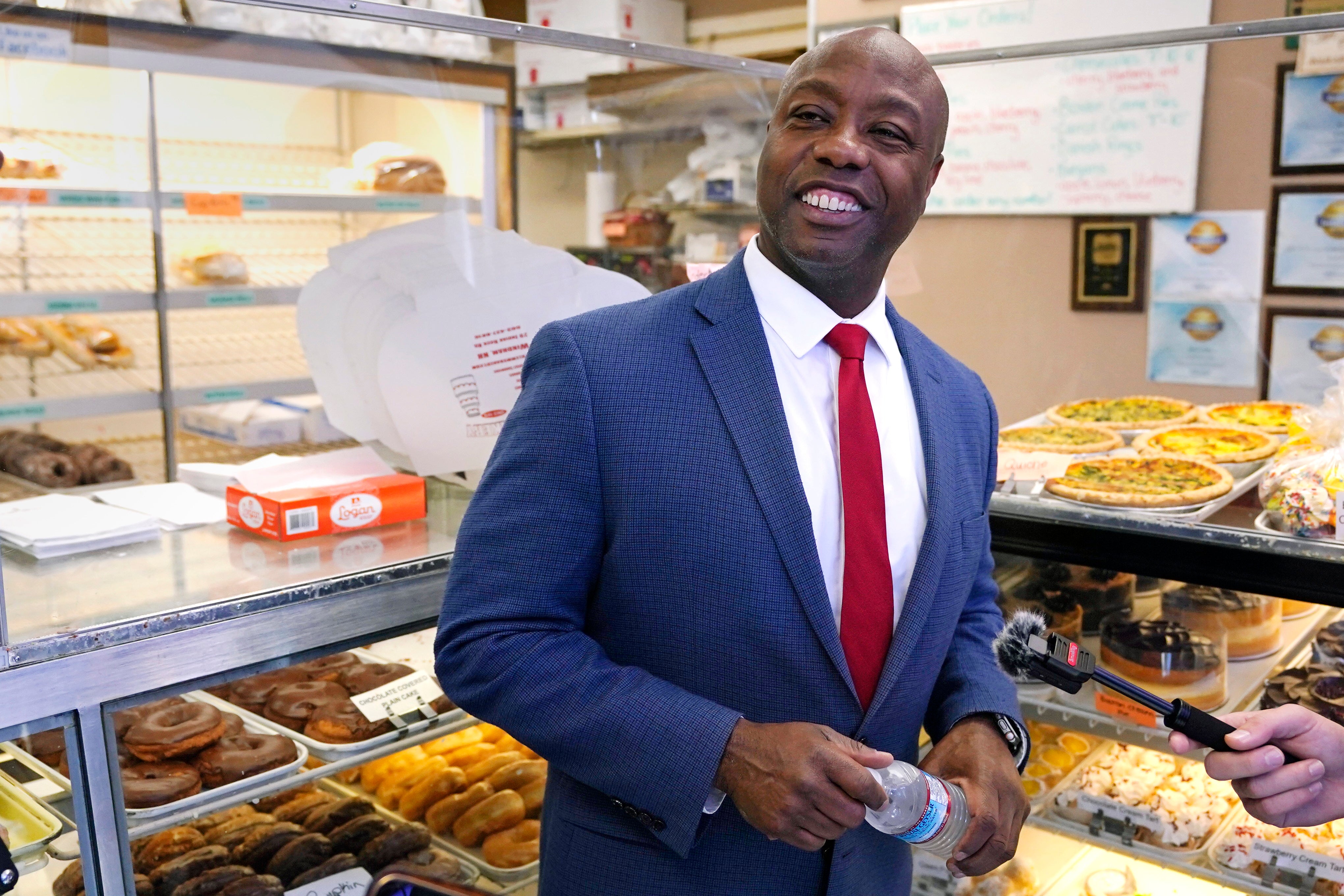
The senator later elaborated on his comments, saying “Obviously the president doesn’t fire folks in the private sector, but he can do in the public sector”.
“I brought up the Ronald Reagan years because I do think that we need to have front and centre the example of a president who stood strong, and today’s president, he stands weak,” he added.
“The UAW is one of the most corrupt and scandal-plagued unions in America,” Mr Scott said in a statement. “They are showing their true colours once again and autoworkers and taxpayers will be left holding the bag together. They want to threaten me and shut me up.”
“They don’t scare me. I will truly fight for American workers and jobs, promote the dignity of work, and end the Biden retreat from the values that make our nation exceptional,” he added.
“American workers continue to witness how a weak president leads to all sorts of chaos at home and abroad,” Mr Scott said. “Joe Biden and Big Labor bosses are undermining the dignity of work and setting autoworkers up for failure. They’re playing politics with people’s lives.”
Donald Trump

When the former president appeared on NBC’s Meet the Press, he was asked by moderator Kristen Welker to say which side he was on regarding the UAW strike.
Mr Trump avoided the question, saying he was “on the side of making our country great” before going on to his regular talking point of slamming electric vehicles.
He blasted UAW leaders and members for attempting to save jobs and raise their pay while the industry is in the middle of the transition to electric.
“The auto workers are being sold down the river by their leadership,” he said.
He claimed that UAW president Shawn Fain is “not doing a good job in representing his union, because he’s not going to have a union in three years from now. Those jobs are all going to be gone because all of those electric cars are going to be made in China”.
An ad for Mr Trump told auto workers “always had their back,” even as union leaders have said that a second term for Mr Trump would be a “disaster”.
Nikki Haley
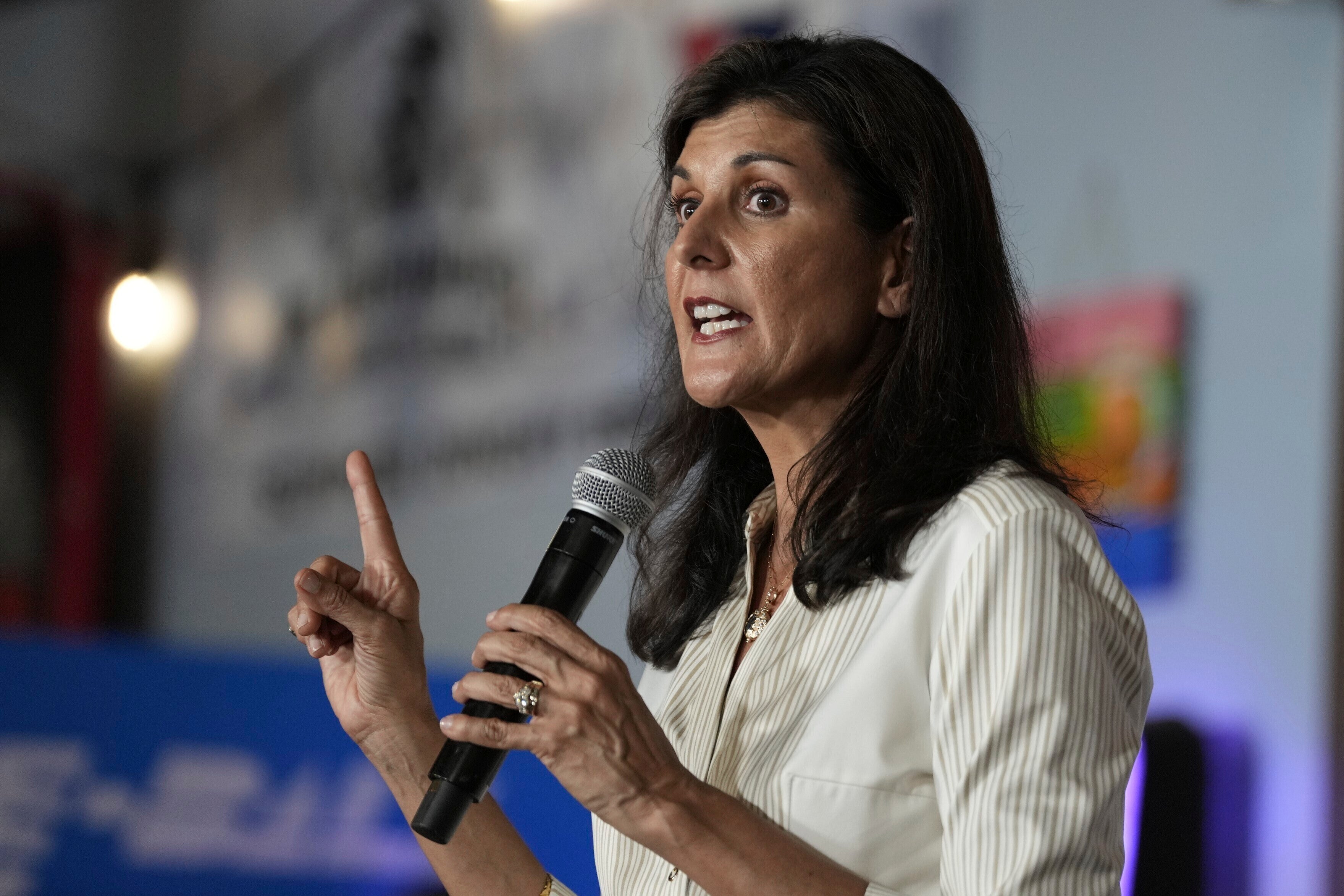
The former UN ambassador and South Carolina governor has pushed her reputation as a “union buster” from her time in her home state, where historical levels of union membership have been the lowest in the US.
She slammed the UAW strike and President Biden’s support of the workers, even appearing on the picket line on 26 September.
“When you have the most pro-union president and he touts that he is emboldening the unions, this is what you get,” she said after the strike had started. “The union is asking for a 40 per cent raise, the companies have come back with a 20 per cent raise. I think any of the taxpayers would love to have a 20 per cent raise and think that’s great.”
Ms Haley didn’t note that the UAW asked for the 40 per cent increase over the course of several years following the sacrifices made by workers to help the companies survive during the 2008 recession.
She also didn’t say that the proposed raise for workers was in line with the CEO pay rise.
Ron DeSantis
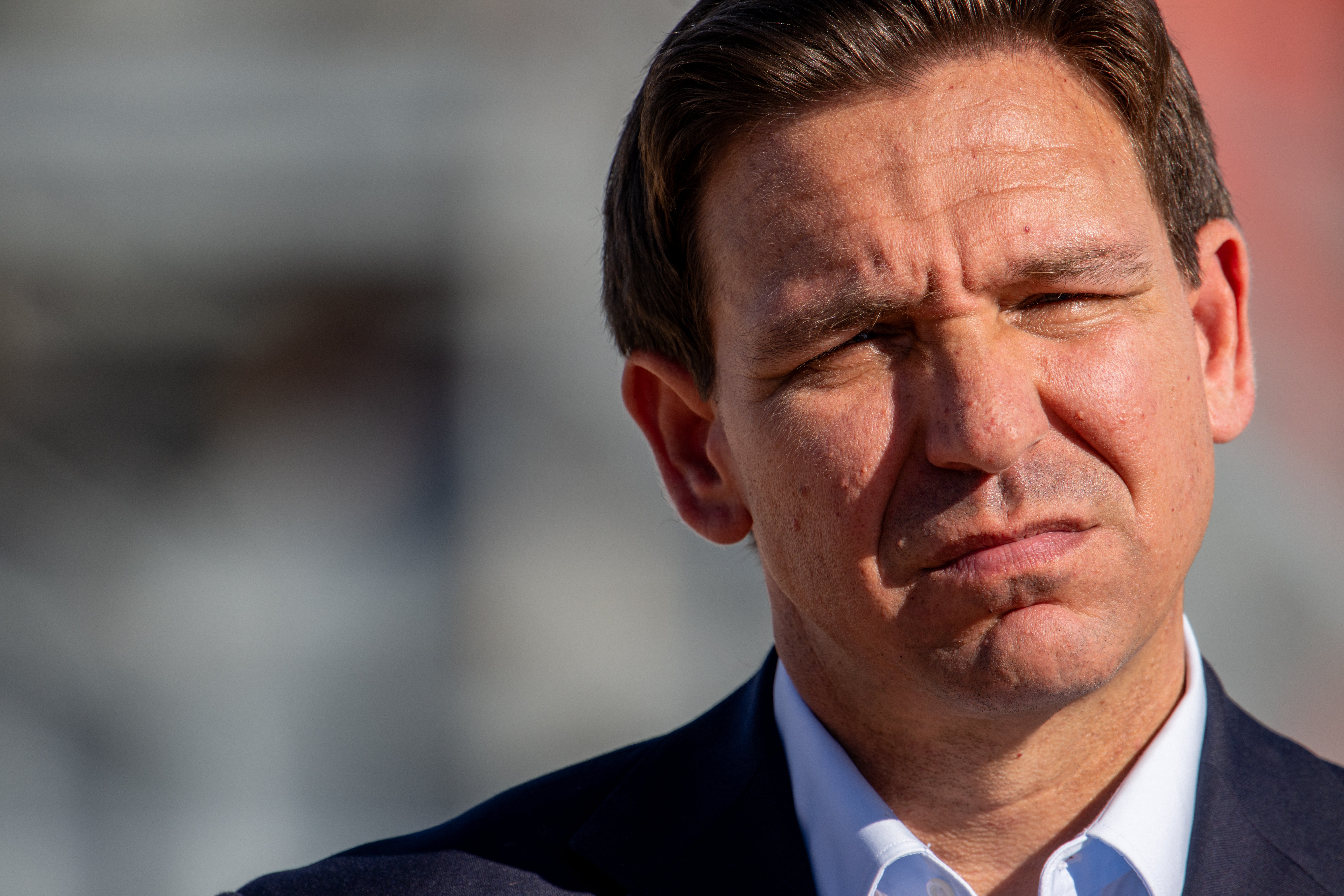
The Florida governor has put in place fresh restrictions on a number of unions in his state and he also rejects the idea of raising the minimum wage.
In May, he signed legislation that banned union dues from being automatically taken from paychecks to fund teachers’ and public employees’ unions. The bill also allows members to leave their union at any time.
But the legislation mostly doesn’t affect unions for workers in traditionally Republican professions, such as firefighters, police officers, and correctional officers.
In 2017, when he was in the US House, he supported the National Right-to-Work Act, which would have stopped unions from requiring workers to pay dues. The bill stalled in committee but is often brought up again by Republicans.
Vivek Ramaswamy
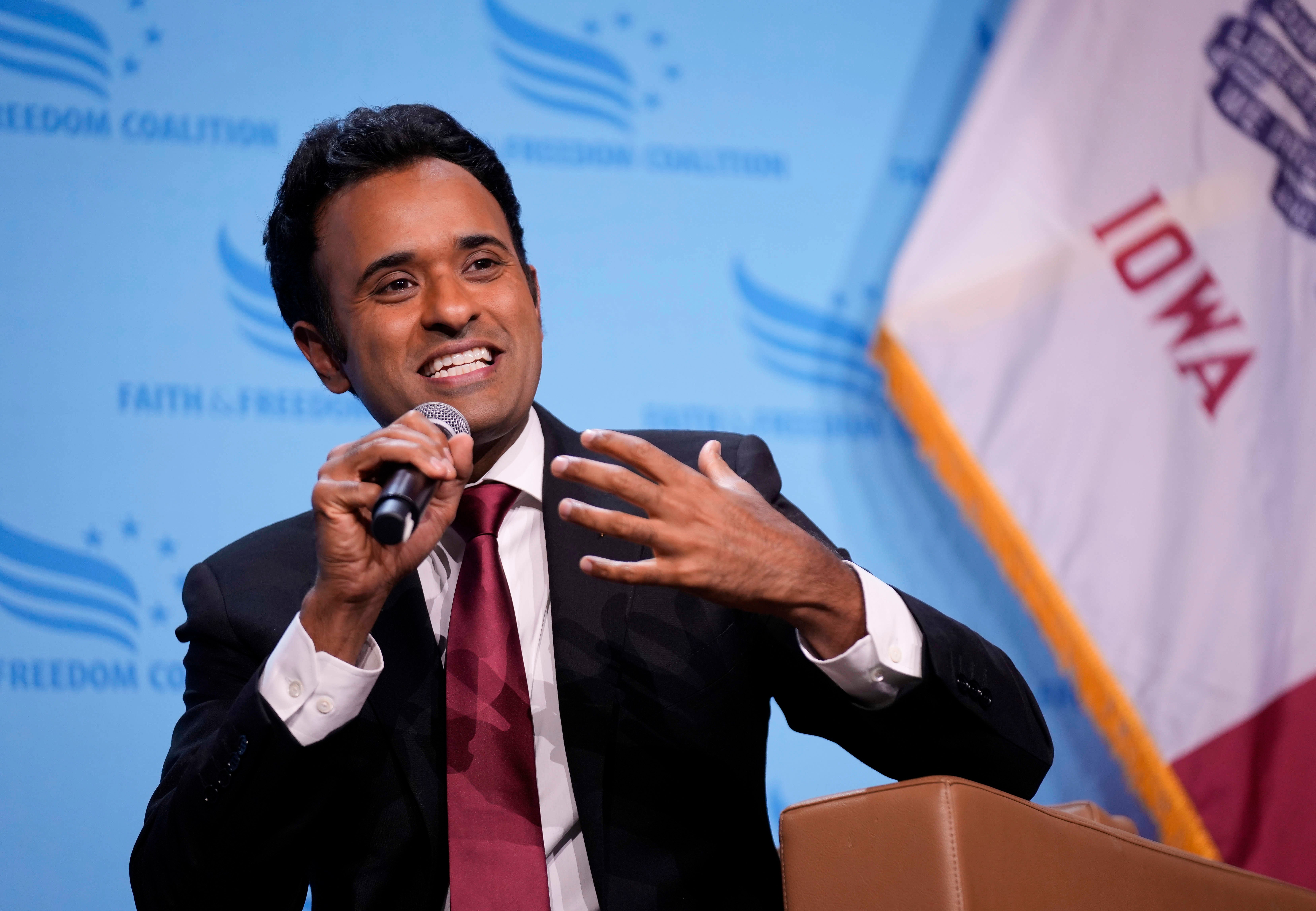
The biotech entrepreneur and anti-woke author aims to completely remove unions as an option for federal workers as well as teachers.
Mr Ramaswamy is only matched by Ms Haley in the GOP field when it comes to union-bashing, The New York Times notes.
Just hours before the UAW strike began, Mr Ramaswamy claimed to have “deep sympathy” for the frustrations of autoworkers regarding pay.
“Wages have not gone up in a meaningful sense, while costs have gone up in this country,” he said.
The following day, he added: “I understand the frustration, but I think union bosses may be directing that ire in the wrong direction when it belongs at the feet of our current federal government.”
At the first Republican debate, Mr Ramaswamy said he wanted to “end the teachers’ unions at the local level” and in an April video he praised a charter school in South Carolina because it wouldn’t be “shackled by some of the same constraints as public schools because their teachers won’t be unionized”.
He claimed that the president of the American Federation of Teachers was “seizing power for those teachers’ unions, holding our public schools and our children hostage”.
“If you can’t beat the teachers’ unions, we’re going to void them,” he added.
Mike Pence
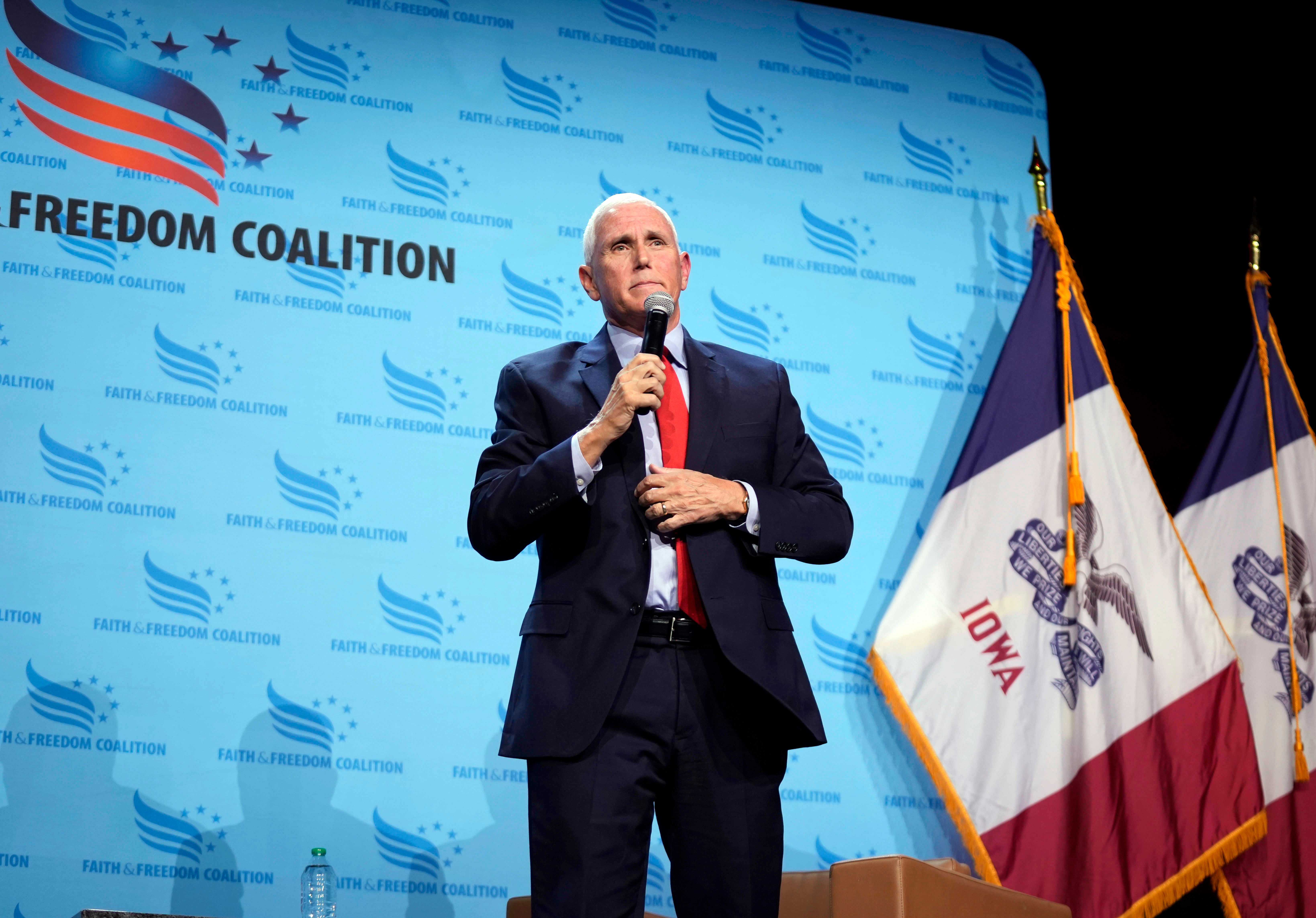
The former vice president and Indiana governor voted against a minimum wage raise as a member of the US House in 2007.
He claimed that an increase would to entry-level jobs being lost and that it would “hurt the working poor”.
As governor, he worked against minimum wages on the local level and defended the state’s right-to-work legislation.
In the US House, he voted against the Employee Free Choice Act – the legislation would have supported the process of workers showing their willingness to join a union by signing cards and it would have hiked penalties against employers who punish union members.
Two days after the start of the UAW strike, he told CNN that he had sympathy for the workers but didn’t criticise the salaries of the CEOs. He also slammed the Biden administration’s policies.
“I don’t think it’s about the usual fault lines of the difference in salaries between white collar and blue collar — I think it’s that everyday Americans out there working hard are living in the midst of the failed policies of Bidenomics,” he told CNN.
Chris Christie
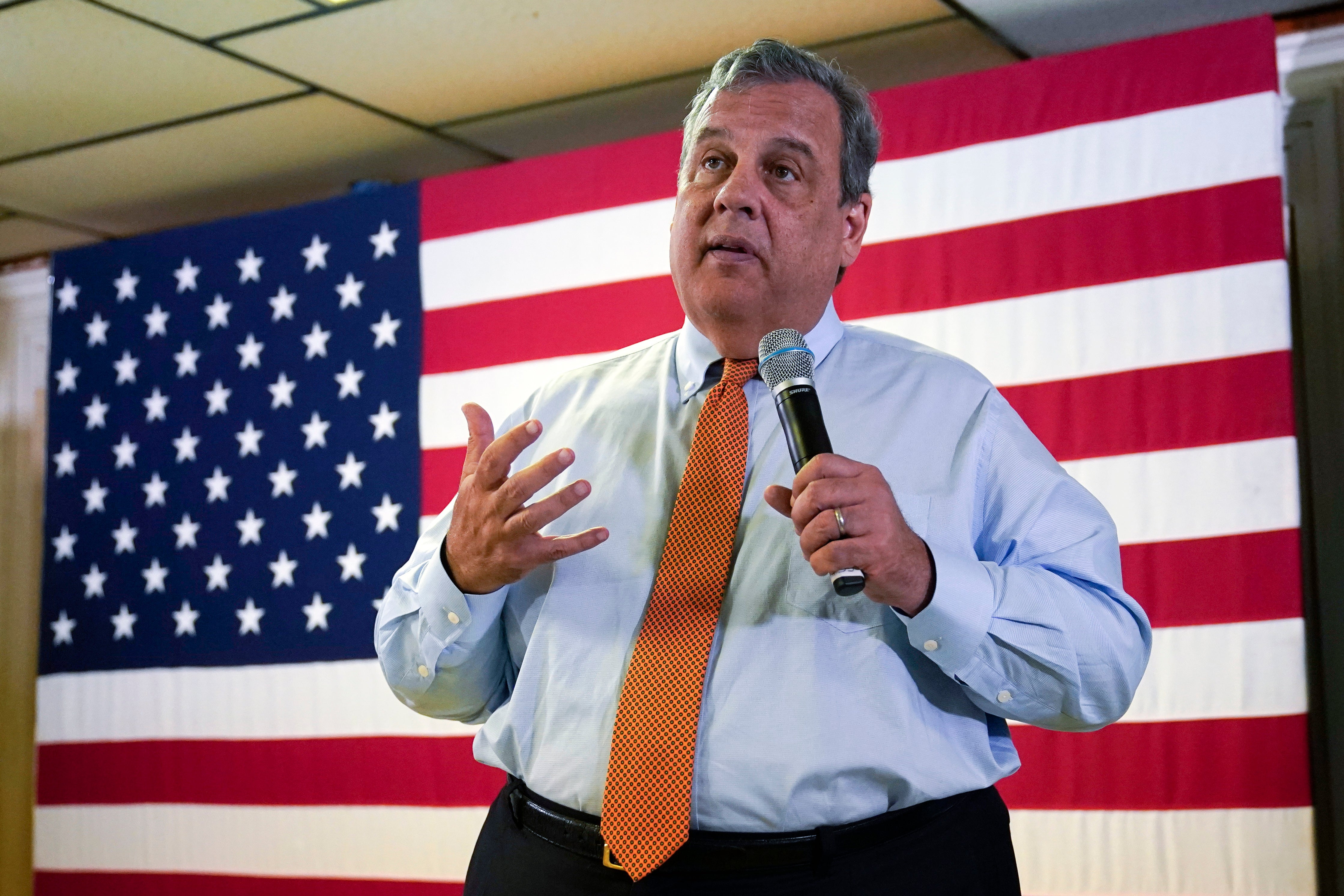
The former New Jersey governor battled teachers’ unions during his time in office.
At the first debate, he said he went “right after the teachers’ unions in New Jersey and drove them down to an all-time low popularity rating because they’re putting themselves before our kids”.
“Public-sector unions, I believe, are an awful redundancy,” he said in New Hampshire this year, according to The New York Times. “I think the private-sector unions have a place in our society, a historical place in our society. They ensure quality of work.”
Mr Christie also slammed the Biden administration’s push for electric vehicles when asked about the UAW strike.
“What a president would need to do is to make sure he’s understanding both sides of that argument and putting the type of political pressure on them to come to a resolution,” he told CNBC.
The government shouldn’t be “dictating either wages or prices,” he added.
Asa Hutchinson
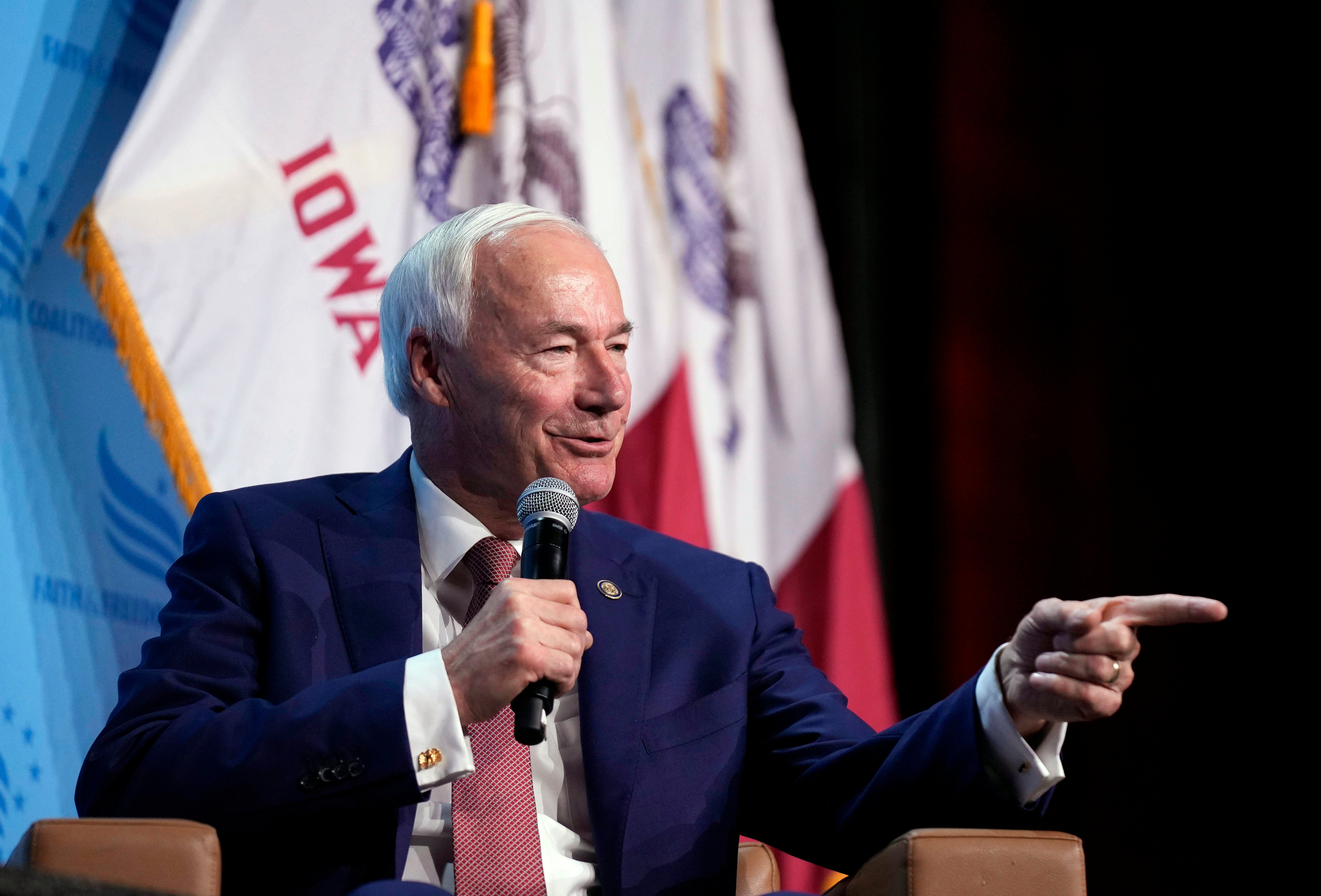
The former Arkansas governor took part in a 2022 rejection of a Biden administration policy to give more government contracts to unionized construction projects. Mr Hutchinson was joined by 17 other governors in opposing the measure.
“Labor unions have played an important role in our nation’s history, but the government’s role in business is to provide an avenue for success and not a roadblock,” Mr Hutchinson said.
He said he would stay in the 2024 race after not qualifying for the second debate.
“I entered this race because it is critically important for a leader within the Republican Party to stand up to Donald Trump and call him out on misleading his supporters and the American people,” he said. “I intend to continue doing that and look forward to holding a press conference in Detroit on Wednesday where I will highlight his false promises to blue-collar and union workers in Michigan and across America.”
Doug Burgum
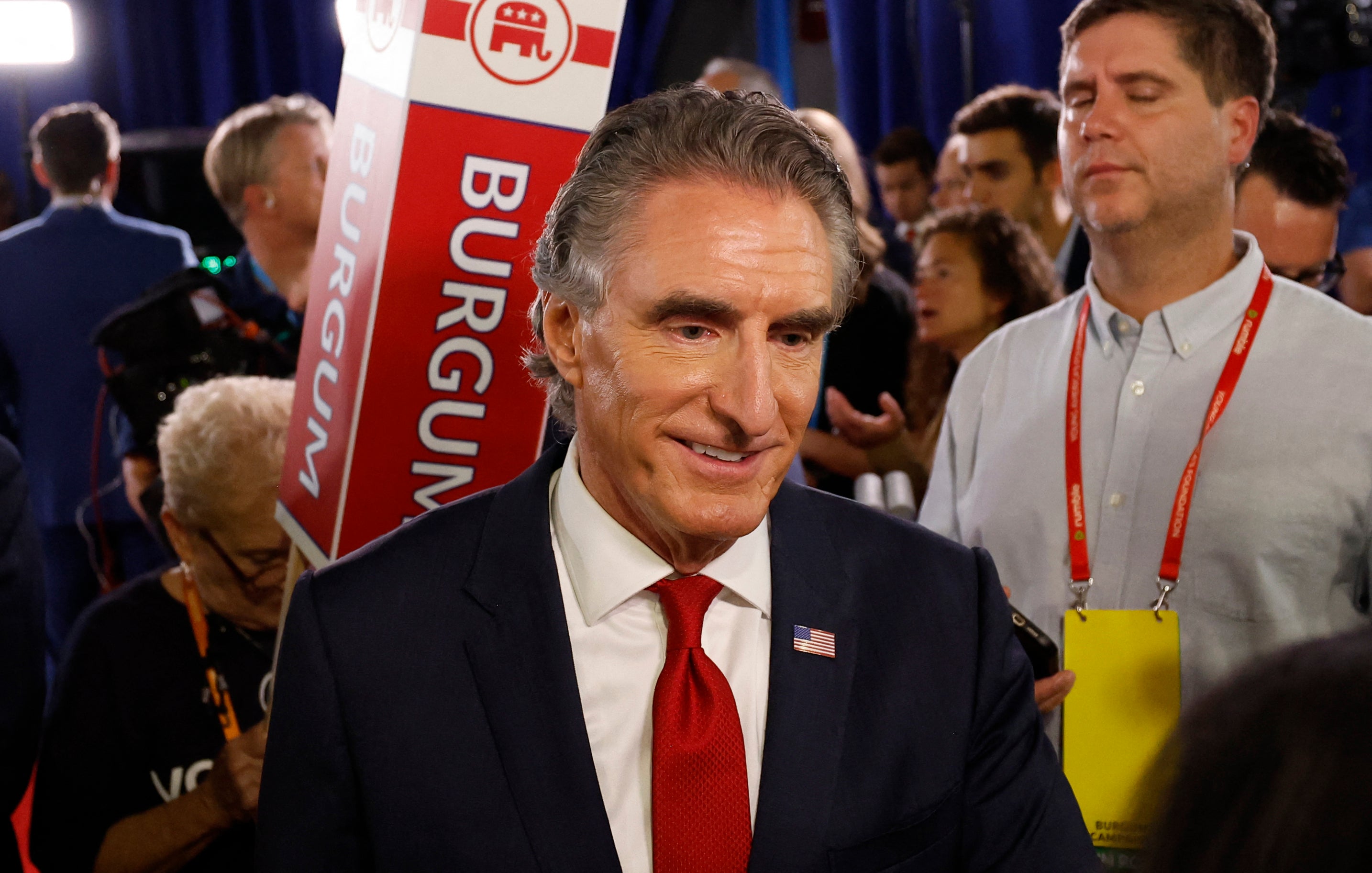
The North Dakota governor and underdog presidential candidate has slammed federal incentives for unions, telling NBC News in July that they hindered economic growth.
“People said, ‘Wow, we’re going to try to get onshoring for critical aspects of what we need for communications, for transportation, for military equipment’ — that made a bunch of sense,” he said referring to the CHIPS Act passed by the US Congress last year to boost semiconductor manufacturing in the US.
He went on to slam the idea of connecting such measures to unions.
“There are plenty of people in this country that want to work for a good wage that don’t feel like they want to pay union dues,” he said. “So I just think that the red tape, the ideology, that it gets in the way of actually driving the economy forward.”
Will Hurd
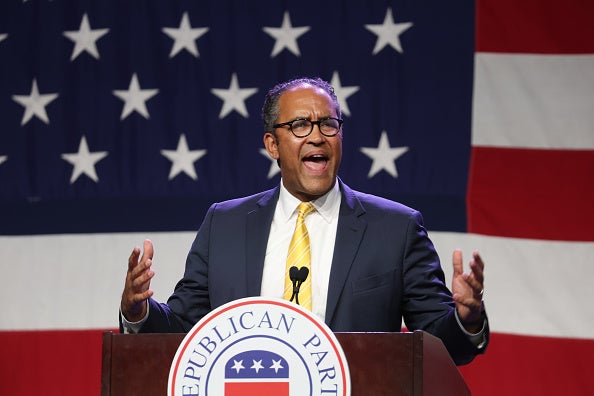
The former US House Representative and CIA agent told The New York Times that the UAW’s pay concerns were fair.
“If workers feel like they’re underpaid, they’re well within their right to protest for better wages,” he told the paper. “I don’t believe it’s the government’s role to tell businesses how much they should pay their workers. It’s free speech and capitalism at work. However, if executives of companies have received government bailouts, have not returned those taxpayer dollars, and are receiving excessive bonuses, that’s something the government should stop.”
While in the House, he voted against the Protecting the Right to Organize Act in 2019. The legislation would have served as a response to right-to-work laws on the state level and boosted rules against punishing workers who are active in their union.
He also supported an amendment to that bill that would have removed the workers’ rights to join a union via a card check to instead require an election.
The Republican candidates of 2024 clearly remain a far cry from then-candidate Eisenhower, who ridiculed rightwing members of his party attacking labour laws for being “stupid”.
“I have no use for those—regardless of their political party—who hold some foolish dream of spinning the clock back to days when unorganized labour was a huddled, almost helpless mass,” he told the AFL just over 71 years ago.


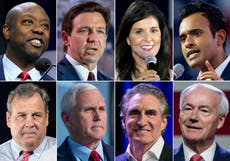

Join our commenting forum
Join thought-provoking conversations, follow other Independent readers and see their replies
Comments